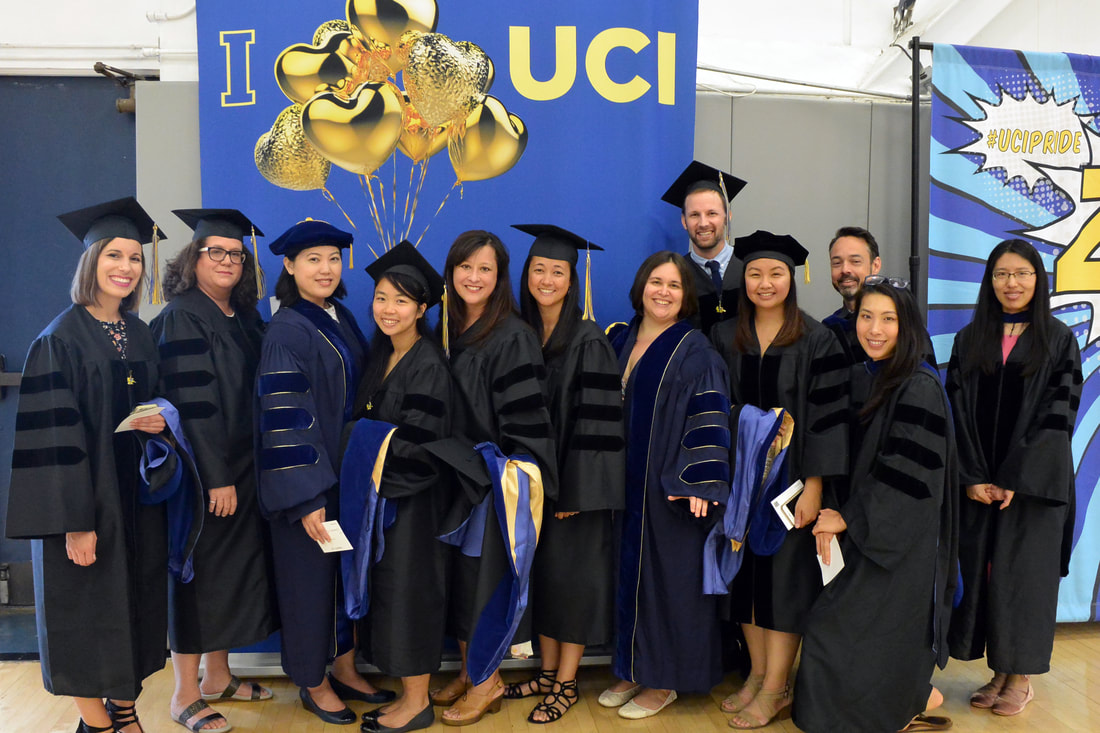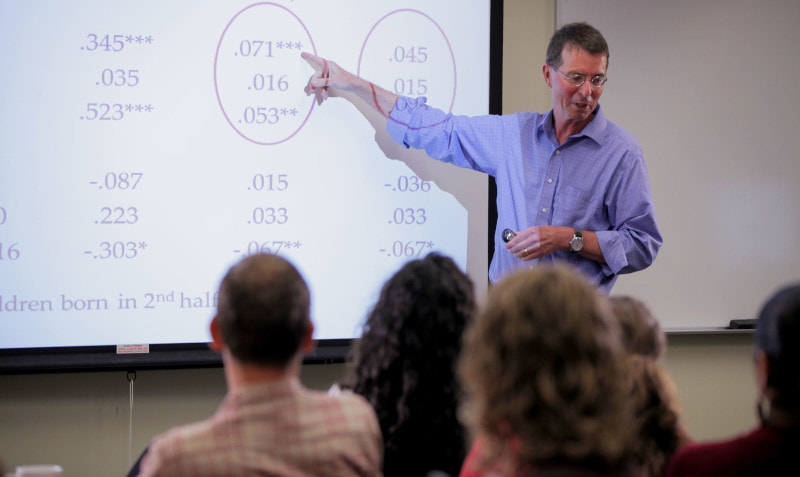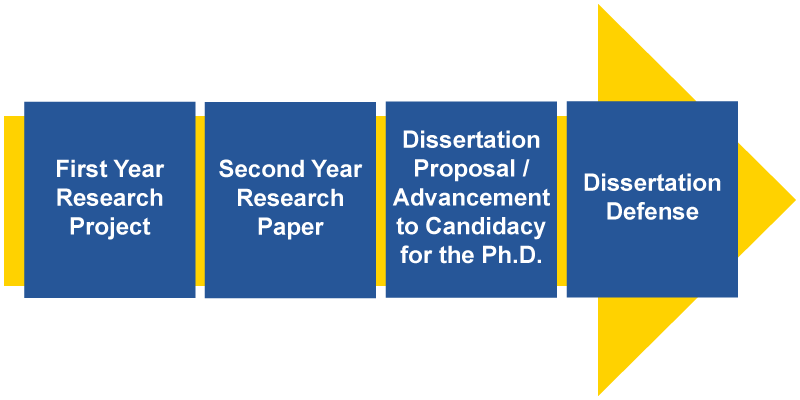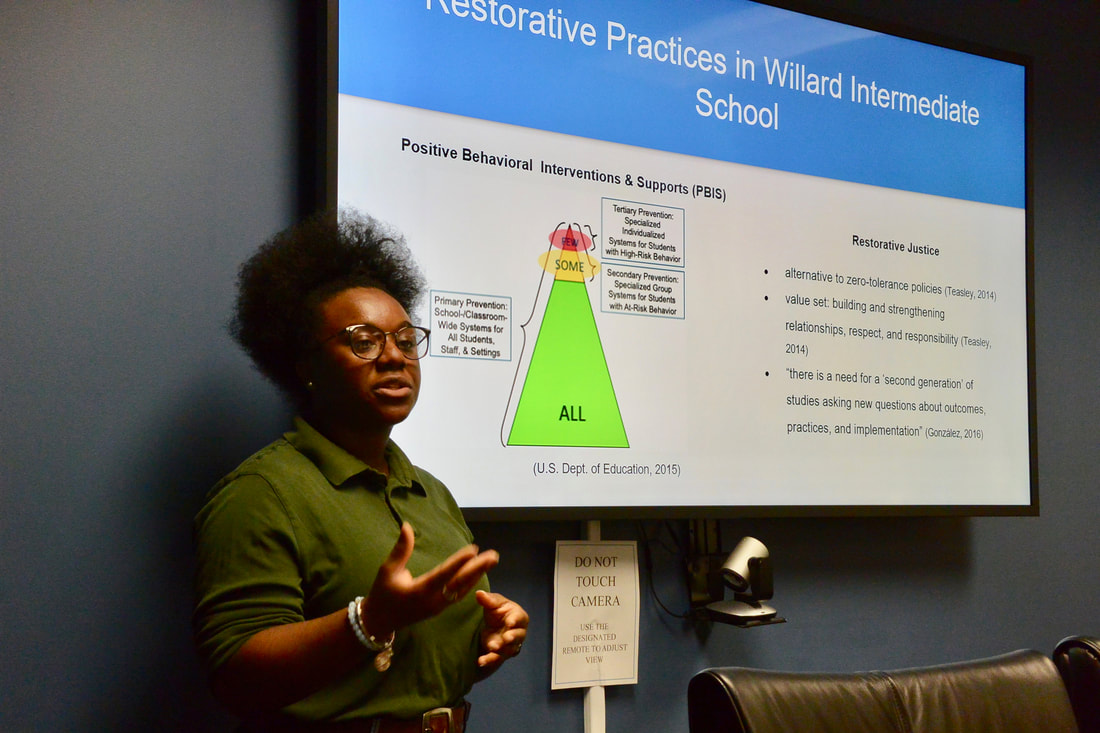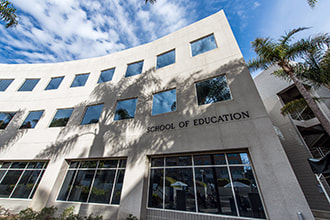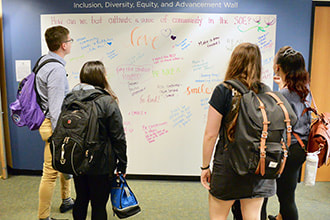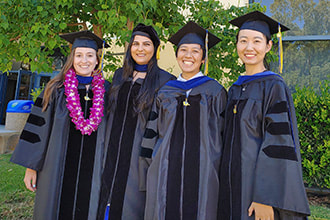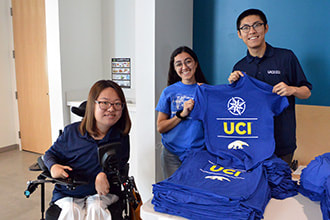Ph.D. in Education Program Overview
Current Ph.D. in Education student? More info about the program can be found here.
Jump to: Areas of Study | Courses | Program Milestones | Student Funding | Conference and Development Funding
The UCI School of Education's Ph.D. in Education program advances educational sciences and contributes to improved educational outcomes for individuals across the entire lifespan. The diverse, dynamic, and collaborative unit is also highly interdisciplinary, focusing on perspectives from neuroscience, economics, sociology, psychology, improvement science, and more. As of July 2021, our faculty were principal investigators on grants whose combined total exceeded $100 million – and the research on these grants creates exciting opportunities for the contributions of doctoral students. The research, community partnerships and programming that you undertake as a graduate student helps prepare you for career in academia, nonprofit, government, or the private sector. At the School of Education, you will have an unparalleled chance to grow into a conscientious and well-rounded scholar.
Three Areas of Study
|
Educational Policy & Social Context (EPSC) The Educational Policy and Social Context area seeks to understand and develop policies and practices aimed at promoting learning and the developmental well-being of children, youth and adults. Policy and social contexts include schools, families and communities. Adopting an interdisciplinary research perspective by drawing from economics, sociology, developmental psychology, and anthropology, EPSC faculty and students use a range of quantitative, qualitative and mixed method approaches to understand impacts of existing policies, to design and evaluate new policy and intervention models, and to understand the relationship between policy making and implementation. With a commitment to promoting social mobility for disadvantaged populations, faculty engage with diverse communities to understand how local, state and national policy can best achieve that goal.
Vertical Divider
|
Human Development in Context (HDiC) Human Development in Context (HDiC) focuses on cognitive and socio-emotional development as it takes place in a wide range of contexts across the lifespan. Drawing on education, cognitive science, neuroscience, developmental psychology, and anthropology perspectives, faculty and students conduct lab experiments, engage in field-based studies, and use longitudinal data sets to examine human development in a wide range of areas, including language and literacy, mathematical thinking, motivation, memory, and other cognitive processes, as well as social relationships with peers, teachers, and parents. Research in this area contributes to building theory on human development across the lifespan and intervention efforts, as well as understanding how particular settings such as schools, homes, communities, media & technology, and afterschool programs influence individual developmental trajectories.
Vertical Divider
|
Teaching, Learning, and Educational Improvement (TLEI) Teaching, Learning, and Educational Improvement brings together the tightly integrated nature of learners and the contexts in which learning takes place. Faculty and students draw on cognitive, socio-cultural, anthropological, and discipline-specific research perspectives to advance learning theory and provide an empirical foundation for improving teaching and learning, including in science, math, engineering, computer science, language, and literacy. With attention to both learners and learning environments, we investigate teaching and learning in schools, communities, and online settings using case studies, design-based implementation research, research-practice partnerships, evaluations of learning outcomes, and data and text mining. Central to this area is the role that social, cultural, and learning environments play in advancing or limiting learning opportunities for diverse learners, as well as the role of teaching and learning innovations in addressing educational inequities.
|
|
Special focus areas include:
Faculty affiliated with this area:
Vertical Divider
|
Special focus areas include:
Faculty affilitated with this area:
Vertical Divider
|
Special focus areas include:
Faculty affiliated with this area:
|
Courses
|
The Ph.D. in Education program of study provides training for all students in critical core knowledge in educational theory and research. Typically, this training is provided through required courses, brown bag seminars, invited addresses, teaching apprenticeships, and direct research experience. In addition, the program provides more in depth training through the areas in Educational Policy and Social Context (EPSC); Human Development in Context (HDiC); Teaching, Learning, and Educational Improvement (TLEI). Over the course of their five years in training, students are expected to take twelve 4-unit courses prior to advancement to candidacy, which is typically achieved by the fall quarter of one’s fourth year in the program. These 12 courses can be viewed here.
Download course schedule
|
Program Milestones
In addition to coursework, students are expected to complete the following milestones during their five years in the program. Specific information about these milestones can be found here.
Student Funding
|
Ph.D. in Education students are guaranteed funding for five years. Funding may be comprised of some combination of mentored apprenticeships either as a Graduate Student Researcher (GSR) or a Teaching Assistant (TA), or through student-won fellowships. All funding options include:
|
Graduate Student Researcher
|
Teaching Assistant
|
Announcement of fellowship opportunities within UCI are on-going. Ph.D. in Education students receive support from their faculty advisors in preparing to apply for many of these fellowships.
Conference and Professional Development Funding
|
Learn More about the Ph.D. in Education Program


